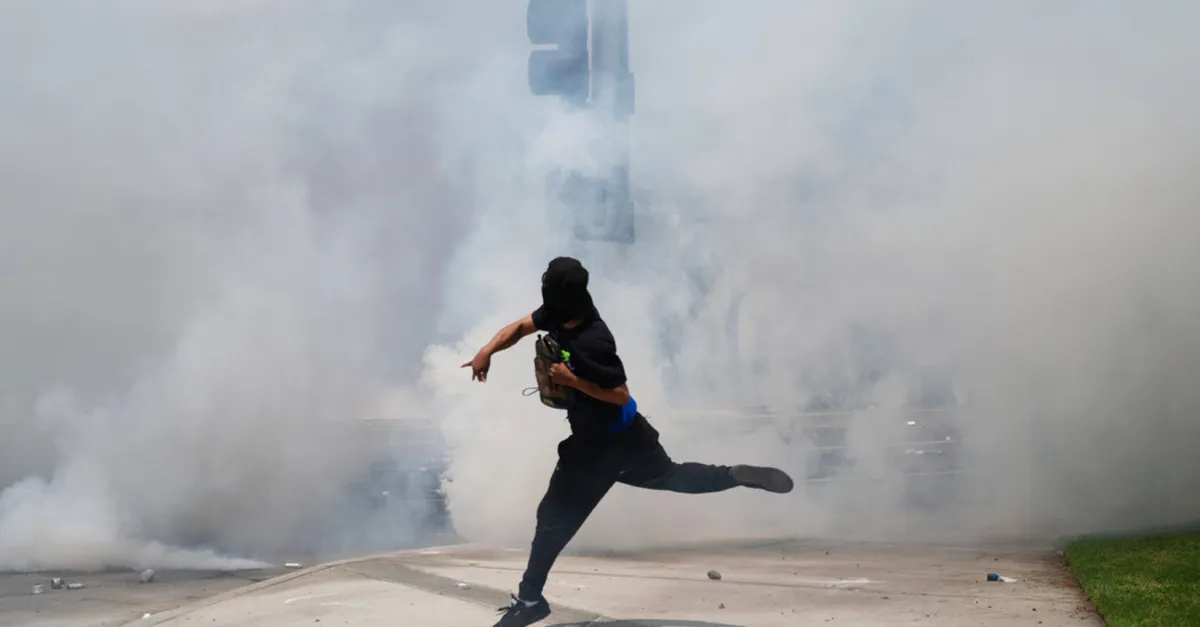
Last week, a series of high-profile immigration raids unfolded in various locations across the United States, signaling a significant ramp-up in the Trump administration’s approach to immigration enforcement. At a student housing complex under construction in Tallahassee, Florida, masked immigration agents apprehended dozens of migrants and loaded them onto buses bound for detention centers. Meanwhile, in New Orleans, 15 workers involved in a flood control project were detained, and similar operations occurred in San Diego and Massachusetts, notably in Martha’s Vineyard and the Berkshires. These incidents have sparked confrontations between bystanders and federal agents, highlighting growing tensions surrounding immigration enforcement.
These recent raids appear to mark a new phase in the administration’s immigration crackdown, shifting focus toward workplaces. Officials have stated that this strategy aims to address the root causes of illegal border crossings, which have persisted for decades. Thomas D. Homan, the White House border czar, indicated a commitment to increasing work site enforcement, asserting that “you’re going to see more work site enforcement than you’ve ever seen in the history of this nation.” This expansion of enforcement strategies diverges from earlier plans that prioritized detaining hardened criminals and international students.
The implications of these workplace raids could be far-reaching, particularly for industries that rely heavily on undocumented labor. In 2023, it was estimated that more than 4 percent of the U.S. workforce, or around 170 million people, were undocumented immigrants. This statistic underscores the potential for raids to disrupt key sectors such as construction, food production, and hospitality. A spokeswoman for the Department of Homeland Security did not provide additional information on the government’s plans or the rationale behind this intensified enforcement effort.
Recent data from the Department of Homeland Security indicates a dramatic increase in arrests, with figures rising from approximately 600 to 2,000 immigrants per day over the past week. This surge in arrests has raised questions about the extent of work site raids among these detentions. Experts suggest that the recent uptick in raids could be attributed to enhanced cooperation between various law enforcement agencies, including the FBI.
As the crackdown on undocumented workers intensifies, both migrants and employers are expressing concerns about the potential consequences for the workforce. Undocumented immigrants represent a significant portion of the labor force in specific industries, comprising 19 percent of landscaping workers, 17 percent of farm workers, and 13 percent of construction workers. Employers like Gus Hoyas, a construction firm owner in Cleveland, have voiced alarm over the impact of deportations on their businesses. “These people are tradesmen — they’re pros in the field,” he stressed, warning that their removal could devastate the construction industry.
Historically, the enforcement of immigration labor laws has fluctuated. The system addressing undocumented labor dates back to 1986 when President Ronald Reagan signed a bill that allowed nearly three million undocumented immigrants to pursue citizenship while criminalizing the hiring of undocumented labor. Over the years, enforcement efforts have varied, with significant focus shifting to sensitive sites post-9/11. Despite some high-profile raids, employers have often evaded serious consequences for hiring undocumented workers, frequently citing difficulties in verifying the authenticity of documents.
Since assuming office, President Biden has not prioritized workplace immigration enforcement, focusing instead on economic recovery and labor shortages. However, the current political climate and recent upticks in raids suggest a potential shift in strategy. Immigration attorneys report that employers are increasingly conducting internal audits to verify employee documentation, with heightened scrutiny from federal agencies.
In light of these escalating enforcement efforts, immigrant advocates and local communities have mobilized in opposition. Protests have emerged in response to immigration raids, especially in areas like Los Angeles, where demonstrators have clashed with federal agents. Advocates argue that these operations not only disrupt families but also endanger the economic stability of industries reliant on immigrant labor. The ongoing tensions reflect a broader debate about immigration policy and its implications for American communities.
The recent immigration raids and the administration's intensified focus on workplaces have raised significant concerns about the future of immigrant labor in the United States. As industries grapple with potential labor shortages and the implications of heightened enforcement, the conversation surrounding immigration policy remains critical. Stakeholders, including employers, employees, and advocates, will need to navigate this complex landscape as the situation continues to evolve.